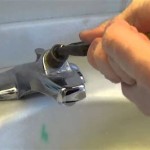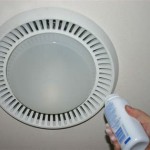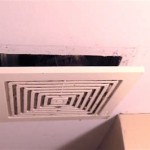What Is The Best Homemade Bathroom Tile Cleaner?
Maintaining sparkling clean bathroom tiles can feel like a constant battle against soap scum, mildew, and hard water stains. While commercial cleaners offer a quick solution, many contain harsh chemicals that can be harmful to the environment and respiratory health. Fortunately, effective and eco-friendly homemade bathroom tile cleaners can be created using readily available ingredients.
Key Ingredients for Homemade Tile Cleaners
Several household staples can be combined to create potent tile cleaning solutions. The best choice depends on the specific type of tile and the nature of the grime being targeted.
*
White Vinegar:
A natural disinfectant and descaler, vinegar effectively cuts through soap scum and mineral deposits. Its acidic nature makes it ideal for tackling hard water stains on ceramic and porcelain tiles. *Baking Soda:
A mild abrasive, baking soda helps to scrub away stubborn grime and stains without scratching tile surfaces. It also acts as a deodorizer, leaving the bathroom smelling fresh. *Lemon Juice:
Similar to vinegar, lemon juice possesses natural acidic properties that dissolve soap scum and brighten tile surfaces. Its fresh citrus scent also adds a pleasant aroma to the bathroom. *Castile Soap:
A gentle, plant-based soap, castile soap effectively cleans and removes grime without harsh chemicals. It is safe for use on various tile types, including natural stone. *Hydrogen Peroxide:
A powerful disinfectant, hydrogen peroxide effectively kills mold and mildew. It is particularly useful for cleaning grout lines and areas prone to moisture buildup. *Essential Oils:
Adding a few drops of essential oils, such as tea tree or lavender, not only enhances the fragrance of the cleaner but also provides additional antibacterial and antifungal properties. *Water:
Water acts as a base for diluting the cleaning solution and facilitating application. The amount of water used can be adjusted depending on the desired consistency.Effective Homemade Tile Cleaner Recipes
The following recipes combine the aforementioned ingredients to address various cleaning needs:
Recipe 1: All-Purpose Tile Cleaner
* 1 cup white vinegar * 1 cup water * 1 tablespoon castile soap * Optional: 10 drops tea tree essential oil
Combine all ingredients in a spray bottle and shake well. Spray onto tile surfaces, let sit for a few minutes, and scrub with a sponge or brush. Rinse thoroughly with water.
Recipe 2: Hard Water Stain Remover
* 1/2 cup baking soda * 1/4 cup white vinegar
Make a paste by slowly adding the vinegar to the baking soda. Apply the paste to the affected areas, let it sit for 15-20 minutes, then scrub gently with a soft brush or cloth. Rinse thoroughly with water.
Recipe 3: Grout Cleaner
* 1/2 cup baking soda * 1/4 cup hydrogen peroxide
Create a paste by mixing the baking soda and hydrogen peroxide. Apply the paste to the grout lines, let it sit for 10-15 minutes, then scrub with a grout brush. Rinse thoroughly with water.
Recipe 4: Mold and Mildew Remover
* 1 part hydrogen peroxide * 2 parts water
Combine the hydrogen peroxide and water in a spray bottle. Spray onto mold and mildew affected areas, let sit for 30 minutes, then scrub with a brush. Rinse with water.
Choosing the Right Cleaner for Your Tiles
Different types of tiles require specific cleaning approaches. Natural stone tiles, such as marble and granite, are more porous and sensitive to acidic cleaners. For these surfaces, it is best to use a pH-neutral cleaner like castile soap diluted with water.
Tips for Effective Tile Cleaning
Following these tips will enhance the effectiveness of your homemade tile cleaner:
*
Regular Cleaning:
Frequent cleaning prevents the buildup of grime and makes cleaning easier. *Ventilation:
Open windows and doors to ensure proper ventilation when using cleaning solutions. *Test in an Inconspicuous Area:
Before applying any cleaner to the entire tile surface, test it in a small, hidden area to ensure compatibility. *Proper Rinsing:
Thoroughly rinse the tiles after cleaning to remove any residue that could attract dirt or cause streaking. *Protective Sealants:
Consider applying a sealant to grout lines to prevent staining and simplify cleaning.Safe Handling Practices
While homemade cleaners are generally safer than commercial alternatives, it's essential to follow safe handling practices:
*
Gloves:
Wear gloves to protect skin from irritation. *Eye Protection:
Wear eye protection when working with cleaning solutions, especially those containing hydrogen peroxide. *Storage:
Store homemade cleaners in clearly labeled containers out of reach of children and pets. *Mixing Chemicals:
Avoid mixing different cleaning solutions, as this can create hazardous fumes.By following these guidelines and choosing the appropriate homemade tile cleaner recipe, achieving beautifully clean and healthy bathroom tiles is a readily attainable goal.

5 Awesome Homemade Bathroom Cleaner Recipes Spend With Pennies

Homemade Tub Tile Cleaner

The Ultimate Guide To Cleaning Grout 10 Diy Tile Cleaners Tested Bren Did

Natural Shower Cleaner Tub And Tile Without Vinegar

Homemade Tub Tile Cleaner

7 Most Powerful Ways To Clean Tiles Grout Naturally

6 Easy To Make Bathroom Tile Cleaner Recipes

Homemade Bathroom Cleaners My Frugal Adventures

Inexpensive Diy Homemade Bathroom Cleaner Thrifty Frugal Mom

What Is The Best Homemade Floor Cleaner 10 Diy Ideas Flooring Inc
Related Posts







